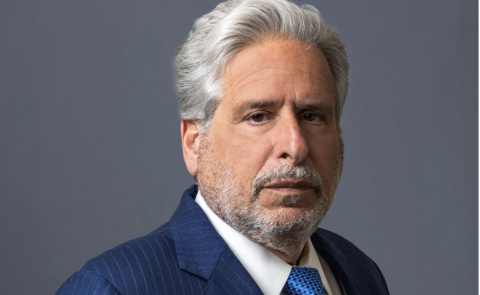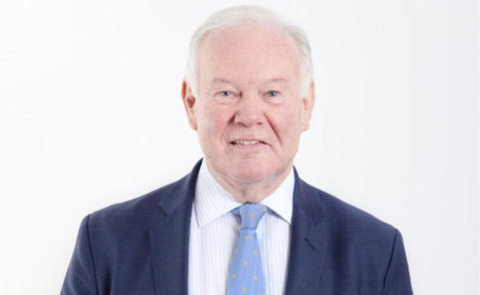
Irina Mamulashvili: Electoral Interference is a Playbook, not a Recipe

How illicit money enters politics is an ancient question with new resonance in the Caucasus. It also happens to be the focus of Irina Mamulashvili’s work. Irina Mamulashvili is a specialist in international politics with a focus on Russia’s foreign and security policy, the South Caucasus, and Eastern Europe. She currently works as a Russia Sanctions Implementation Project Officer at the Centre for Finance and Security (CFS) at the Royal United Services Institute (RUSI), the world’s oldest defence and security think tank, founded in London in 1831.
At RUSI, Irina contributes to projects on Russia sanctions and counter-terrorism financing. She is part of the SIFMANet project team, which regularly meets with public and private sector representatives, academics, civil society organisations, and other key stakeholders. These meetings take place in-country and are designed to encourage open discussions on issues such as illicit financial flows, economic security, sanctions implementation, and election interference. After each visit, the team publishes a detailed country report summarising the key insights gathered—the next one, focused on Armenia, is due for publication soon.
Before joining RUSI, Irina conducted research for the House of Commons on sanctions against Russia, supported MEP’s work at the European Parliament during Russia’s full-scale invasion of Ukraine, and contributed to efforts related to the EU’s relationship with Eastern Partnership countries. She has also served as a Program Manager at the International Society for Fair Elections and Democracy (ISFED), where she led large-scale projects in Georgia related to election observation, disinformation, and voter education.
Do you focus specifically on political funding?
I spent two years working on elections in Georgia at one of the country’s oldest and largest election watchdog organisations. I was involved in nationwide election observation and led a voter education campaign that engaged young people, diaspora communities, and socially vulnerable citizens. Our work also focused on tackling social media disinformation and its impact on the electoral process. At RUSI, my main focus is on Russian sanctions. However, given the increasing relevance of elections and the rise in interference globally, we are also expanding our work on election interference and political financing. Recent elections in Romania, Moldova, and Georgia have shown how foreign influence and opaque electoral financing can seriously undermine democratic processes. In our recent workshop in Armenia, we examined the country’s political finance legislation, explored enforcement challenges, and discussed practical recommendations with local stakeholders on how to strengthen transparency and reduce vulnerabilities ahead of upcoming elections.
Election interference is as old as politics. That is not a Russian challenge alone. Do you focus on illicit or illegitimate capital flows in your work in the South Caucasus?
The region continues to face significant challenges related to illicit financial flows and the misuse of financial resources, with instances where these issues intersect. Both Georgia and Armenia have come under increasing scrutiny from the European Union and the United States over these concerns, creating a complex dynamic as both nations pursue closer ties with Western institutions.
In Armenia, the West’s primary concern revolves around sanctions evasion, particularly in light of a sharp increase in trade between Armenia and Russia since Russia’s full-scale invasion of Ukraine. In 2021, trade turnover between Russia and Armenia stood at $2.6 billion, but by 2024, this had surged to $12.4 billion, raising concerns about the potential re-export of EU goods to Russia via Armenia. During our recent workshop in Armenia, we noted progress in sanction compliance, including the adoption of a government decree that restricts the export of dual-use goods, as well as the formation of a working group chaired by the Deputy Prime Minister to address these challenges. However, serious concerns persist, such as significant cash flows and the continued involvement of sanctioned entities like Russia’s VTB Bank and Iran’s Mellat Bank. While these institutions are officially excluded from Armenia’s financial system, the deep connections between Armenia and Russia, particularly through the large Armenian diaspora, allow these financial flows to persist, further complicating enforcement.
In Georgia, the issue of illicit financing is also alarming, with concerns ranging from the re-export of vehicles to the potential misuse of financial channels in electoral processes. Addressing these challenges requires political will, capacity, and tools to detect and prevent illicit financial activities and election interference. However, given the recent backsliding of Georgian democracy and diminishing EU integration efforts, these problems are likely to worsen in the coming years.
The growing threat of election interference and foreign influence in the region is becoming increasingly critical. Armenia’s preparations for the 2026 elections raise particular concerns, with fears of Russian-style interference similar to what was seen in Moldova, where tactics like opening thousands of foreign accounts and financing political advertisements were employed. Armenia worries that these methods could be replicated in their own elections. In Georgia, the 2024 elections saw a concerted pro-Kremlin and anti-Western disinformation campaign, underscoring the rising vulnerability of regional electoral systems to foreign interference.
Georgia does not have a history of government change through elections, so something dramatic has to happen. The last time this happened was in 2012. It would not have occurred then without a substantial investment of the same private resources. Are oligarchs illegitimate in effect or in principle? Is there a straightforward way of deciding what is legitimate?
While Georgia may not have a long history of democratic transitions, it has experienced pivotal moments where the people’s determination and commitment to change have led to significant political shifts, including the peaceful removal of regimes. However, in any society, when power becomes concentrated in the hands of a small elite—individuals or groups possessing substantial wealth, influence, and interconnected networks—the ability to address and challenge such entrenched power becomes exponentially more difficult.
In smaller and emerging democracies like Georgia, this concentration of power often results in the disproportionate control of critical resources, which can be used to manipulate political and economic systems. This concentration not only undermines the functioning of key democratic institutions—such as the judiciary, the Central Election Commission, media outlets, and the prosecution service—but also weakens the very foundations of the rule of law. When these institutions falter, elections are at risk of being manipulated, political power can be illegitimately wielded, and public trust in democratic processes erodes. In such environments, disinformation, propaganda, and the manipulation of public opinion become pervasive, casting doubt on the legitimacy of political outcomes.
The European Union has frequently raised concerns about the erosion of institutional independence in Georgia, highlighting the significant risk to the country’s democratic resilience.
Let’s say there is a political conglomerate with more pro-Russian leanings. Given the current state of value fragmentation in the West, would it be accurate to say there is a “recession” in pro-democracy or pro-liberal funding for political pluralism?
Since the formation of the Eastern Partnership initiative in 2009, and particularly with the 2014 Association Agreement between the EU and Georgia, as well as the CEPA with Armenia, we have seen a noticeable increase in EU funding and engagement. This has led to more government support programs and increased funding for civil society and independent media, addressing crucial issues for democracy.
In Armenia, there is no sign of recession—in fact, we’re seeing a significant increase in democracy-related funding from Western institutions. Armenia has been actively pursuing a multi-vector foreign policy, maintaining its relationship with Russia and Iran, while also seeking closer integration with the West. This was demonstrated by the recent signing of the Strategic Partnership Treaty with the US.
Georgia, however, presents a more complex situation. While the EU and US continue to fund civil society organizations, independent media, and other democratic institutions, these efforts are happening amid a backdrop of democratic backsliding. The Georgian Dream party has effectively frozen the EU integration process, undermining its commitment to democratic reforms. As a result, the EU and US have halted millions of dollars in government funding, responding to the government’s anti-democratic moves, its misuse of funds, and its increasingly anti-Western agenda.
This environment is one that Russia benefits from. Georgia’s anti-democratic trajectory, paired with the government’s ties to the Kremlin, has led to sanctions from both the US and the EU against key Georgian figures. In the 2024 elections, we saw significant violations that did not reflect the will of the Georgian people, and we’re witnessing a large increase in Russian-backed disinformation and media campaigns.
As Armenia approaches its 2026 elections, the risk of Russian interference grows. We’re already seeing signs of Russian attempts to undermine democracy and hinder Armenia’s Western integration. Russia’s strategy is clear—Georgia and Armenia, as democratic states with closer ties to the West, do not fit into Russia’s agenda.
Is this an illegitimate influence? After all, if you do have a three-million diaspora, the elite study in Russian institutions, and you are engaging with the Russian digital ecosystem. Is being pro-Russian a matter of hybrid activity or cultural momentum?
Standing up to Russia is incredibly complex because it’s not about one single tool, but a whole playbook of tactics. Russia uses a variety of methods—cash flows, informal networks, individuals, misinformation, propaganda, and technology. They know their targets well, carefully crafting messages and strategies tailored to each situation. They influence in different forms, which is why it’s so difficult to counter, especially for countries like Georgia and Armenia, which have limited financial resources, capacity, and tools.
One common concern I’ve heard from both Armenians and Georgians is the West’s delayed response. Often, the West is more focused on reacting to situations as they unfold, rather than taking a preventive approach. But because Russia’s tactics constantly evolve and adapt over time, with a mix of traditional methods and new ones, it’s not always easy to stay ahead.
If I had to offer advice to any country preparing for elections and worried about Russian interference, it would be to learn from those who’ve already faced it. Look at the tactics, methods, and channels Russia has used in other countries. Form partnerships across borders to share intelligence and strategies. By learning from one another, countries can better equip themselves to handle the ongoing and evolving threat of Russian interference.
Interview conducted by Ilya Roubanis
See Also

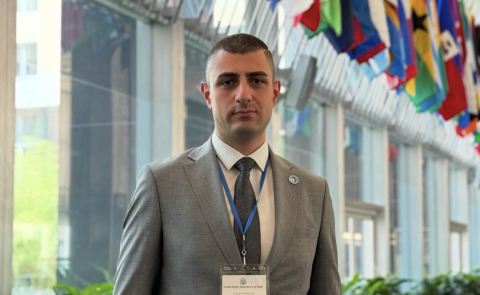
Giorgi Tumasyan: Tbilisi and Yerevan Can Jointly Tackle Geopolitical Challenges
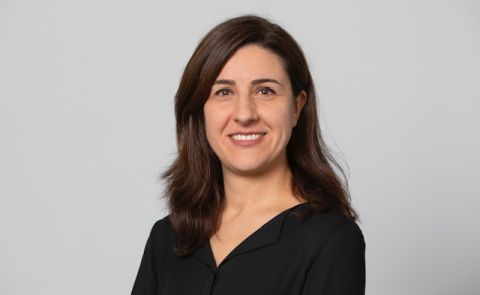
Marina Ohanjanyan: The EU Still Matters in TRIPP
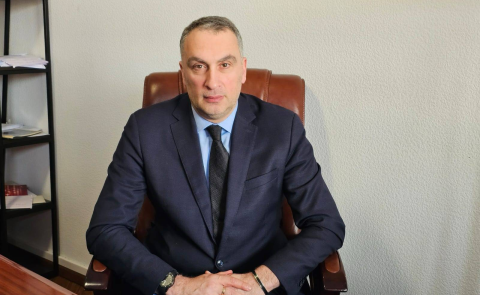
Victor Kipiani: Windows, Not Walls - Georgia’s Way Ahead
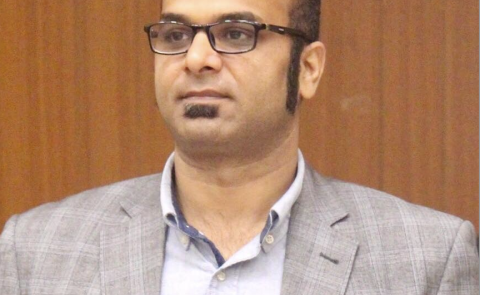
Dr Rehman: Beijing’s Quiet Hand in Pakistan–Armenia Thaw
